Religious Education
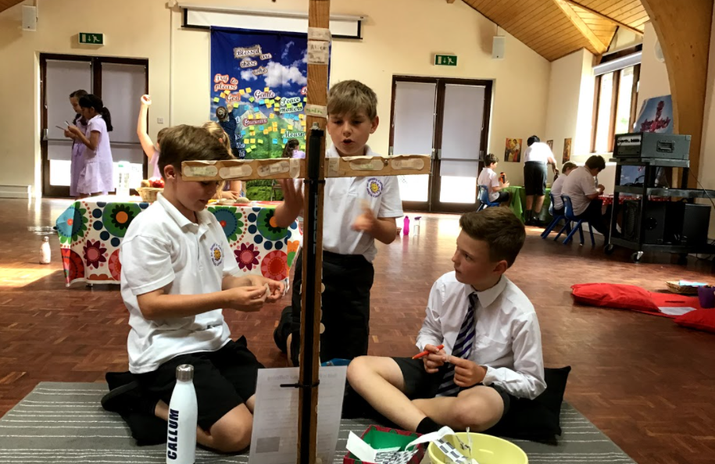
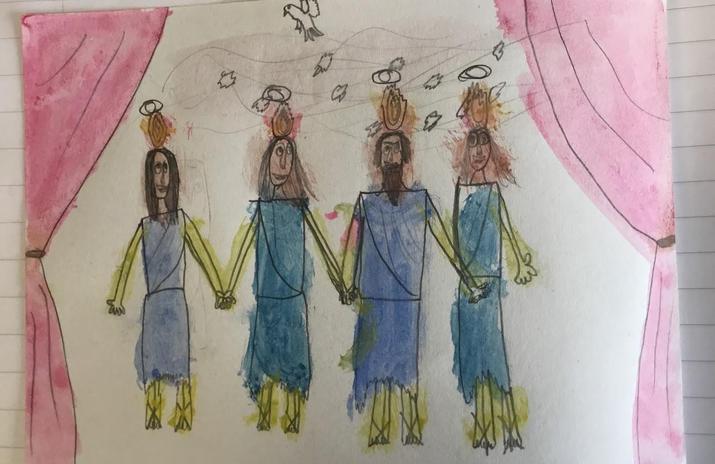
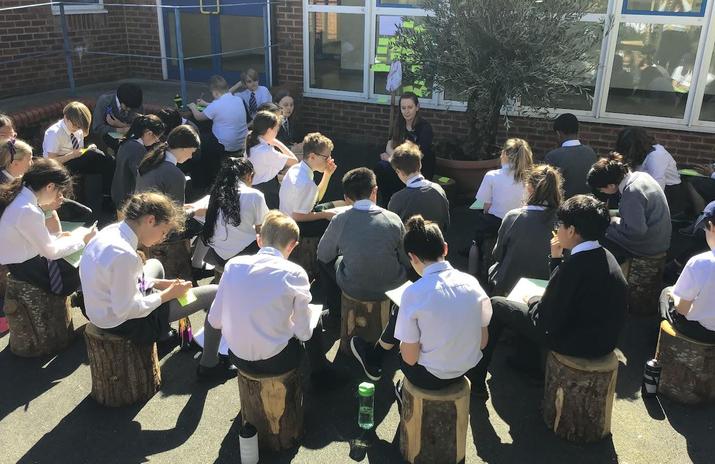
Religious Education at St Joseph's
Religious Education is a core subject and is planned, taught, assessed and monitored with the same rigour as other core curriculum subjects.
The outcome of Religious Education is religiously literate and engaged young people who have the knowledge, understanding and skills – appropriate to their age and capacity – to reflect spiritually, and think ethically and theologically, and who are aware of the demands of religious commitment in everyday life. (Religious Education Curriculum Directory, Catholic Bishops’ Conference, 2012, p.6)
Religious Education at St Joseph’s is structured around three key components: Catholic Life and Mission, Religious Education, and Collective Worship, each playing a vital role in nurturing the spiritual and moral development of our pupils.
Catholic Life and Mission
Mission:
"I am the Way, the Truth and the Life" - John 14:6
Our mission at St Joseph’s is to offer the community an encounter with the living God - Jesus Christ: The Way, The Truth, The Life. Our vision is to capture hearts to follow His way, enlighten minds to seek His truth and awaken souls to embrace His life. We believe in an education for the whole child - heart, mind and soul.
Spiritual Council
The Spiritual Council comprises one representative from each class from Years 1,2,3,4,5 and 6. This group of children focus on developing the spiritual life of the school. They meet to evaluate the collective worship being delivered by the school. In addition, they reflect on the liturgical season and ways in which the school can develop its Catholicity, collective worship and prayer life and charitable contributions.
The Spiritual Council meet with Ellie (school Chaplain) every week. The children share their ideas with their classmates after each meeting and collect new suggestions to bring to the next meeting. Currently, we are working towards achieving the Oscar Romero Award, the Faith in Action Award and the Live Simply Award.
Catholic Social Teaching:
Catholic Social Teaching is woven into the daily life of our pupils at St Joseph's. Each week, our Celebration of the Word highlights the 'Tools of St Joseph's', which are closely aligned with Catholic virtues and reflect the core identity of our school.
Charity and Fundraising:
To live in an atmosphere of love and mutual respect, it is fundamental that we work to achieve the common good for everyone, locally and globally. At St Joseph’s, we strive to help others through charity work and fundraising: each term, we participate in whole school fundraising to donate time, goods and money to a variety of charities.
Parish and Liturgical seasons:
At St Joseph's, we work closely with families and the parish community to ensure that all children are deeply rooted in our Catholic values. The seasons of Advent and Lent are significant times of spiritual preparation for Christmas and Easter, and are marked with great reverence across our school. We place special emphasis on these liturgical seasons by organising fundraising initiatives for charitable causes and offering prayer and activity groups led by dedicated staff volunteers. Regular newsletters are sent home to highlight the importance of these seasons and to encourage family participation.
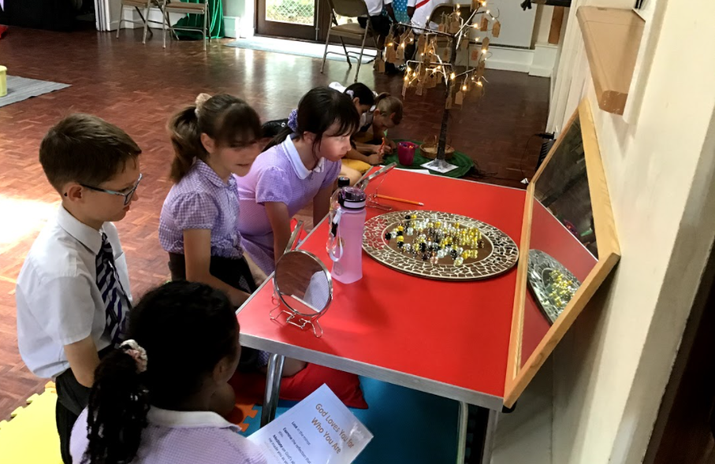
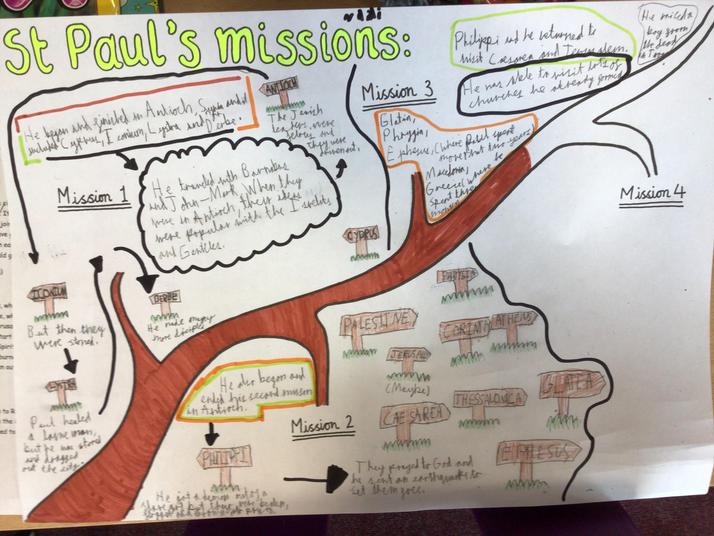
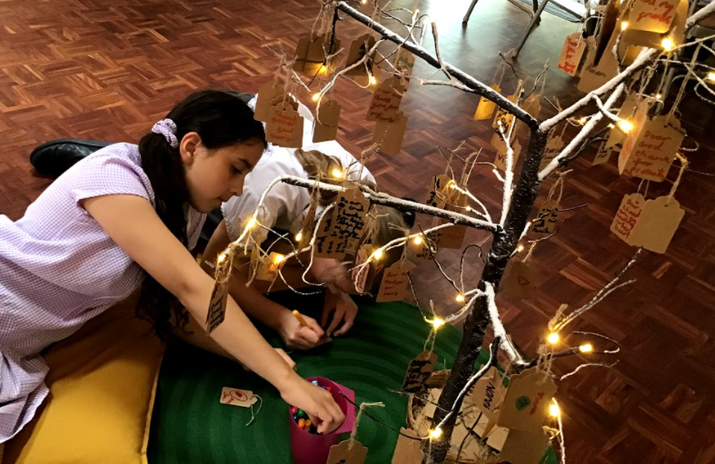
Learning and Teaching in Religious Education
At St Joseph’s, we follow the Religious Education Programme: 'Day by Day'. This programme follows the Diocesan Syllabus approved by the Catholic Bishops of England and Wales and adopted by the Diocese of Arundel and Brighton.
The 'Day by Day' programme is structured into six thematic branches, each spanning half a term:
-
Autumn 1: Creation and Covenant
-
Autumn 2: Prophecy and Promise
-
Spring 1: Galilee to Jerusalem
-
Spring 2: Desert to Garden
-
Summer 1: To the Ends of the Earth
-
Summer 2: Dialogue and Encounter
The RE curriculum focuses on knowledge lenses that outline expected learning outcomes, divided into four components: hear, believe, live, and celebrate. It also emphasises skill development through "ways of knowing" (understand, discern, and respond), ensuring children gain knowledge and practical application across age phases.
At each key stage, 10% of the curriculum time is dedicated to RE. This does not include times of Collective Worship.
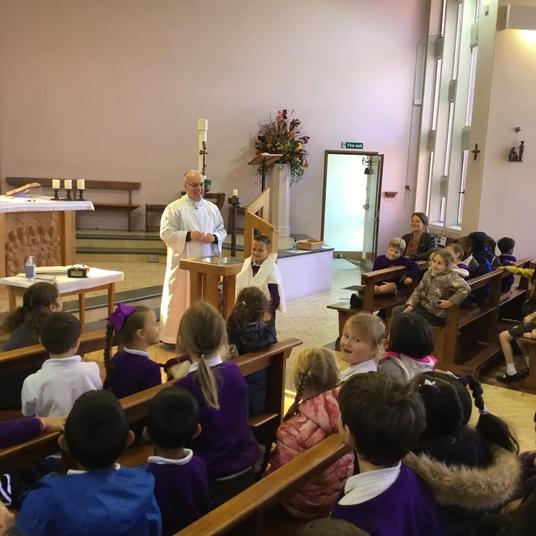
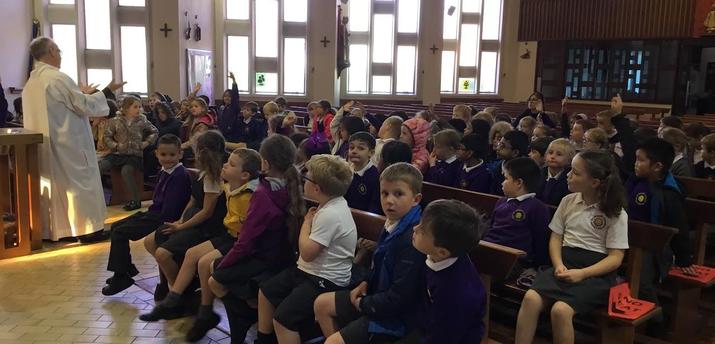
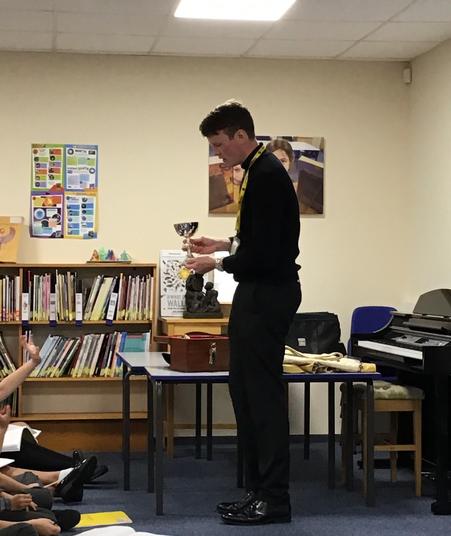
Collective Worship at St Joseph's
In fidelity to the Church’s call to proclaim the Word of God (cf. Dei Verbum, 25), each week begins with a focus on the Gospel and its central theme for the forthcoming Sunday.
This theme is prayerfully explored throughout the school, culminating in an invitation for all members of our community to live out the Gospel message in their daily lives. Through the Headteacher’s Blog, resources shared encourage parents and carers to engage in prayer, reflection, and dialogue with their children, fostering a deeper understanding of how the Gospel can be lived in today’s world.
|
Monday |
Celebration of the Word Each week, the focus on the upcoming Sunday’s Gospel invites all children and members of our school community to engage in living out the message. To support this, resources are shared via the Headteacher’s Blog, encouraging families to reflect on and celebrate the Gospel together at home. |
|
Tuesday |
Prayer Focus The focus on the upcoming week’s Gospel theme continues within the classroom, offering meaningful opportunities for children to deepen their understanding of Christ’s message. Through exploring the lives of inspirational individuals, developing key life skills, and embracing British values, pupils are encouraged to reflect on how Gospel teachings and the Tools of St Joseph can be lived out in today’s world. This form of worship aims to broaden their spiritual awareness and strengthen their connection to faith in everyday life. |
|
Wednesday |
Celebrate As part of the Day by Day RE curriculum, children come together as a class to celebrate and reflect on their learning in Religious Education. This celebration follows the structure of each weekly lesson: Hear, Believe, Live, and Celebrate. The weekly Celebrate session enables children to celebrate their learning, deepen their understanding and express their faith in a meaningful way. |
|
Thursday |
Class/Year Group Worship Each week, children are given dedicated time for reflection, allowing them to deepen their understanding of the Gospel themes explored. Weekly class or year group worship is led collaboratively by both teachers and childrem, with a growing emphasis on child-led worship to foster a reflective atmosphere and encourage personal engagement with faith. In Key Stage 2, children take an active role in planning and leading their class worship sessions, supported by the School Chaplain. |
|
Friday |
Class Assembly Throughout the year, each class prepares and presents their own assembly, inspired by the weekly Gospel theme. These assemblies provide a meaningful opportunity for children to share their reflections and understanding with the wider school community and their families. Their messages are brought to life through creative expressions such as drama, music, choral readings, and prayer. |
Prayer:
Daily prayer is at the heart of life at St Joseph’s, helping children to experience Jesus as a close friend; someone they can trust, seek guidance from, and turn to in times of need. Prayer is an integral part of our daily routine, taking place at the beginning and end of each school day, as well as before lunch.
Our school grounds offer dedicated spaces for quiet reflection and spiritual connection, including beautifully maintained prayer grottos and our serene Prayer Garden.
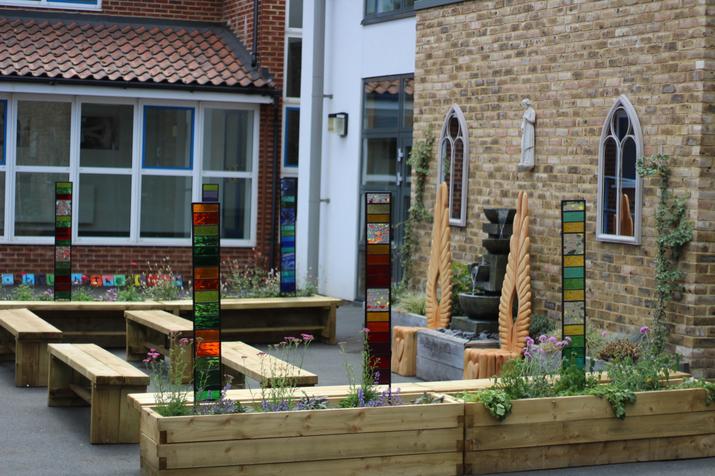
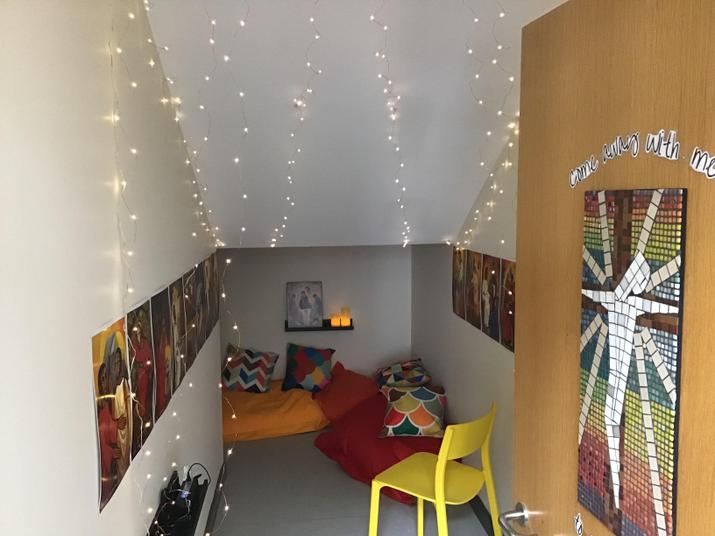
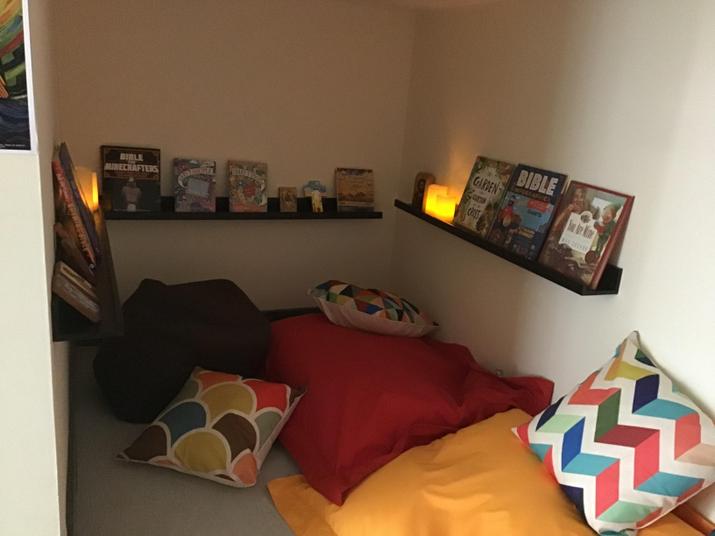
Masses and Liturgies:
In accordance with the liturgical calendar of the Church, we celebrate the Holy Days of Obligation with Masses and liturgies that bring the school community together in prayer and worship. These celebrations are rooted in the Church’s call to active participation in the liturgy, as affirmed in Sacrosanctum Concilium (14), and are guided by the principles outlined in the Prayer and Liturgy Directory (Catholic Education Service, 2023).
Children play an active role in these celebrations, proclaiming Scripture, leading prayers, participating in liturgical drama, singing hymns, serving at the altar, and presenting the Offertory. This approach reflects the guidance of the Directory for Masses with Children (1973), which encourages meaningful involvement of young people in the liturgy to foster their spiritual growth and understanding.
Masses and liturgies are held either in the School Hall or at St Mary’s Church, with dates communicated to families through the term calendar.
Useful websites:
https://www.abeducationservice.org.uk/
https://www.cpg.church/
https://cafod.org.uk/Education/Primary-teaching-resources
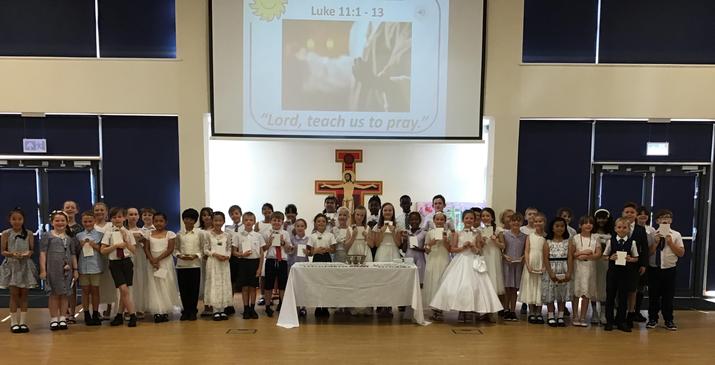
Right of Withdrawal from Religious Education
At St Joseph's, Religious Education (RE) is a central part of our curriculum and daily life, reflecting our Catholic ethos and values. We aim to nurture each child’s spiritual, moral, social and cultural development through engaging and inclusive RE lessons. However, we recognise that parents and carers have the legal right to withdraw their child from all or part of RE. If you are considering this option, we encourage you to speak with Mr Collins to discuss your concerns and explore the best way forward for your child.
